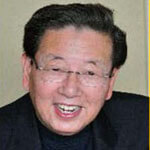Savio Woo
 Dr. Savio L-Y. Woo, Ph.D., D.Sc., D.Eng.
Dr. Savio L-Y. Woo, Ph.D., D.Sc., D.Eng.
Distinguished University Professor
University of Pittsburgh, Pennsylvania
Lecture Information:
"Bioengineering: The Bridge between Biology and Orthopaedic Surgery"
Thursday, February 9, 2012, 4:00pm - 5:00pm
Davidson Continuing Education Conference Center Boardroom, 2nd Floor
Dr. Savio L-Y. Woo is a Distinguished University Professor of Bioengineering and the Founder and Director of the Musculoskeletal Research Center (MSRC), a diverse multidisciplinary research and educational center in the Department of Bioengineering, Swanson School of Engineering at the University of Pittsburgh. Dr. Woo is a pioneer in bioengineering and is renowned for his 40 years of translational research in healing and repair of tissues. Together with his team, they have authored 304 original research papers in refereed journals as well as 137 book chapters and review articles. More recently, Dr. Woo has focused on using novel functional tissue engineering to heal and to regenerate ligament and tendon at the molecular, cellular, tissue and organ levels. Also, he has pioneered the use of robotic technology to study the function of ACL and to improve ACL reconstruction procedures. When combining it with biplanar fluoroscopy, he and his team will be able to better characterize mechanisms of ACL injury and find better ways for its prevention.
Dr. Woo has been inducted into the Institute of Medicine, the National Academy of Engineering, and the Academia Sinica, only one of four persons who have gained all three of these honors.
Abstract:
Bioengineering: The Bridge between Biology and Orthopaedic Surgery
Savio L-Y. Woo, Ph.D., D.Sc.(Hon), D.Eng.(Hon)
Distinguished University Professor and Director
Musculoskeletal Research Center
Department of Bioengineering, Swanson School of Engineering
University of Pittsburgh, PA 15219
Bioengineering has made many significant contributions to clinical medicine, notably diagnostics, drug delivery and tissue repairs and replacement. Coupled with the explosive growth in biological sciences, new doors have been opened for bioengineers to introduce a new paradigm, termed Functional Tissue Engineering (FTE) for medical and surgical practices. As a result, it has become an even more attractive discipline.
In this lecture, we will discuss how bioengineering has served as the bridge between biology and clinical management of ligament and tendon injuries in orthopaedic sports medicine. Examples of how laboratory studies have contributed to both non-operative and operative management of complete tears of ligaments and tendons will be given. In recent years, FTE, especially bioscaffolds have been used to further improve the quality of healing tendons and ligaments. Through robotics technology, new knowledge on the multiple degree-of-freedom (DOF) knee kinematics was used to improve ligament reconstruction procedures. Further, in-vivo studies of joint kinematics using novel biplanar fluoroscopy have produced valuable data on in vivo ligament and tendon function to help to develop improved treatment procedures and injury prevention strategies.
The biological complexity will continue to introduce larger gaps between diagnostics and treatment. This will present challenges as well as opportunities for bioengineers to develop new analytical and experimental techniques at the molecular, cellular, tissue and organ levels. Working in concert with biologists, clinicians, and others, it is possible to come up with more creative and scientifically based procedures to provide better patient care.

